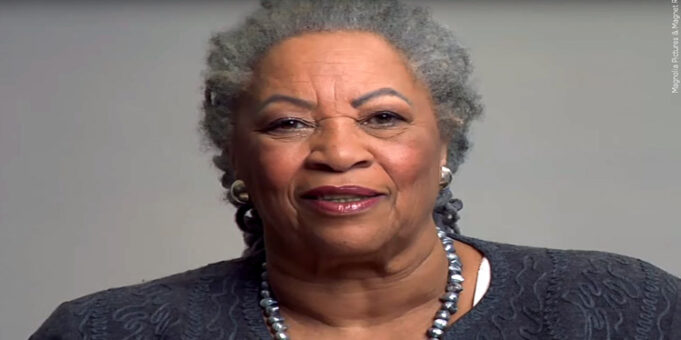NEW YORK—To much of the world the late Toni Morrison was a novelist, celebrated for such classics as “Beloved,” “Song of Solomon” and “The Bluest Eye.”
But the Nobel laureate did not confine herself to one kind of writing.
Ms. Morrison also completed plays, poems, essays, and short stories, one of which is coming out as a book on Feb. 1. “Recitatif,” written by Ms. Morrison in the early 1980s and rarely seen over the following decades, follows the lives of two women from childhood to their contrasting fortunes as adults. Zadie Smith contributes an introduction and the story’s audio edition is read by the actor Bahni Turpin.
According to Autumn M. Womack, a professor of English and African American Studies at Princeton University (where Ms. Morrison taught for years), the author had written short fiction at least since her college years at Howard University and Cornell University, though she never published a story collection. “Recitatif” was included in the 1983 release “Confirmation: An Anthology of African American Women,” co-edited by the poet-playwright Amiri Baraka and now out of print.
“Recitatif” refers to a musical expression defined by Merriam-Webster as “a rhythmically free vocal style that imitates the natural inflections of speech,” a style Ms. Morrison often suggested. The story tells of a series of encounters between Roberta and Twyla, one of whom is Black, the other White, although we are left to guess which is which.
They meet as girls at the St. Bonaventure children’s shelter (“it was something else to be stuck in a strange place with a girl from a whole other race,” remembers Twyla, the story’s narrator). And they run into each other on occasion years later, whether at a Howard Johnson’s in upstate New York, where Twyla was working and Roberta comes in with a man scheduled to meet with Jimi Hendrix, or later at a nearby Food Emporium.
As Ms. Womack notes, “Recitatif” includes themes found elsewhere in author Morrison’s work, whether the complicated relationship between two women that was also at the heart of her novel “Sula” or the racial blurring Ms. Morrison used in “Paradise,” a 1998 novel in which Ms. Morrison refers to a White character within a Black community without making clear who it is. Ms. Morrison often spoke of race as an invention of society, once writing that “the realm of racial difference has been allowed an intellectual weight to which it has no claim.” (AP)













